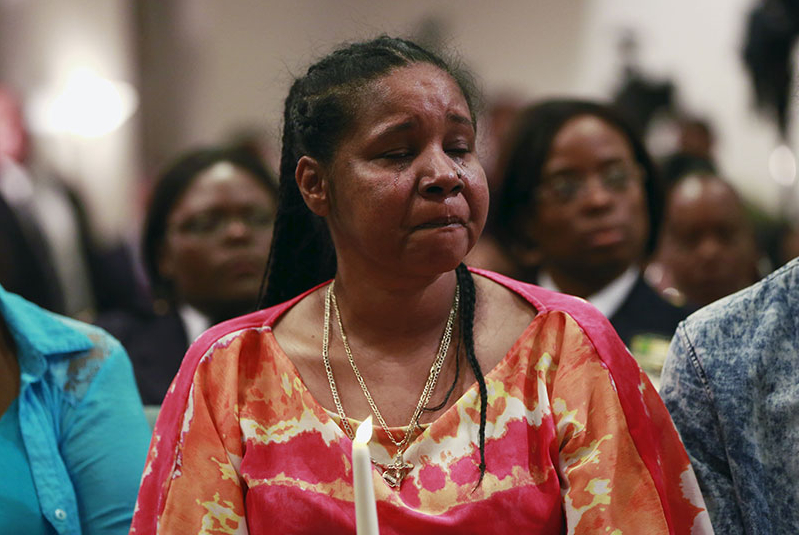
The city of New York reached a $5.9 million settlement on Monday with the family of Eric Garner, who died after police placed him in a chokehold in the process of arresting him. No one has been charged in the case, which led the family to believe justice was not served.
According to John Bacon and Matthew Diebel of USA Today, both Garner's family and civil rights advocate Al Sharpton urged on Tuesday that charges be brought in relation to Garner's death, which happened nearly a year ago with police in Staten Island.
"They treated my husband like an animal, and I think they give animals more respect than humans," said Garner's wife, Esaw Snipes Garner.
Garner's daughter, Erica, said that the settlement "does not represent justice."
"We are calling on the Department of Justice and (Attorney General) Loretta Lynch to deliver justice for my father," Erica said.
Sharpton insisted that Garner's case had nothing to do with money. He accused some detractors of trying to make the Garner family "look like money grubbers and me look like a hustler because you don't want to deal with the chokehold."
"Eric Garner and the community have not received justice," Sharpton said. "Money is not justice."
According to USA Today, a New York City grand jury failed to indict Officer Daniel Pantaleo after finding "no reasonable cause" back in December. Pantaleo was the officer who placed Garner in a chokehold in response to a complaint that cigarettes were being sold in front of a store.
"A bystander's cellphone video of the confrontation showed Pantaleo using the chokehold while others wrestled Garner to the ground," Bacon and Diebel wrote. "Garner pleaded, 'I can't breathe.'"
USA Today reported that after the decision not to indict was made, thousands of protesters took to the streets of New York, San Francisco, Philadelphia, Atlanta, and Ferguson, Mo. Eric Holder, the U.S. attorney general at the time, ordered a federal civil rights inquiry into Garner's death.
"A medical examiner ruled Garner's death a homicide, and several inquiries into Garner's death remain pending," Bacon and Diebel wrote.
According to Vera Haller and Matt Pearce of the Los Angeles Times, Garner's family plans to continue protests over his death.
"Don't congratulate us. This is not a victory. Victory will come when we get justice," said Garner's mother, Gwen Carr. "Now, we still need you all to stand with us."
Erica emphasized that "no amount of money is going to bring my father back."
However, the Los Angeles Times reported that not everyone agreed with the settlement. Ed Mullins, president of the police union Sergeants Benevolent Assn., thought the settlement's terms were "obscene."
"While the death of Mr. Garner while resisting arrest was unforeseeable, this excessive and exorbitant settlement was not," Mullins said. "Although Mr. Garner did not provide his family with an abundance of wealth, it was clear from the outset that the mayor's office would."
Mullins contended that Garner's family "should not be rewarded simply because he repeatedly chose to break the law and resist arrest." However, New York City Mayor Bill de Blasio noted that Garner's death was "on the mind of many New Yorkers."
"I think we've come a long way, even in the last year in terms of bringing police and community together," de Blasio said.
Esaw elaborated on the personal fallout she had in the aftermath of Garner's death.
"I can't sleep at night. I've been married 28 years," she said. "Now I have no one but my children, and I am alone to deal with this for the rest of my life."






